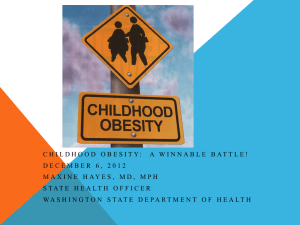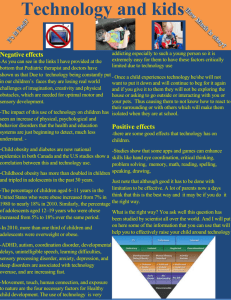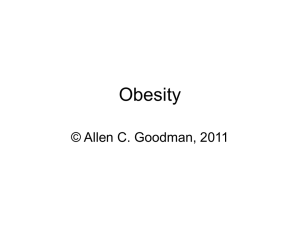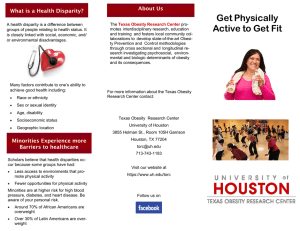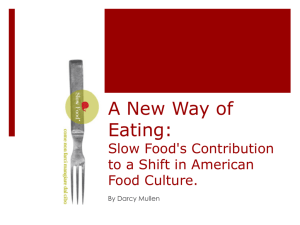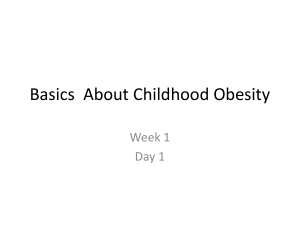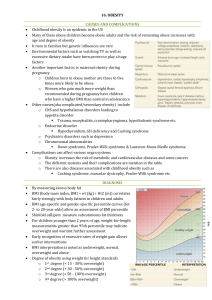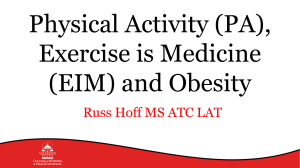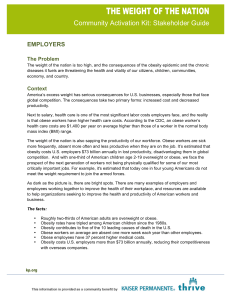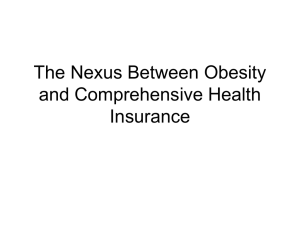SuperSize Me Discussion Questions
advertisement
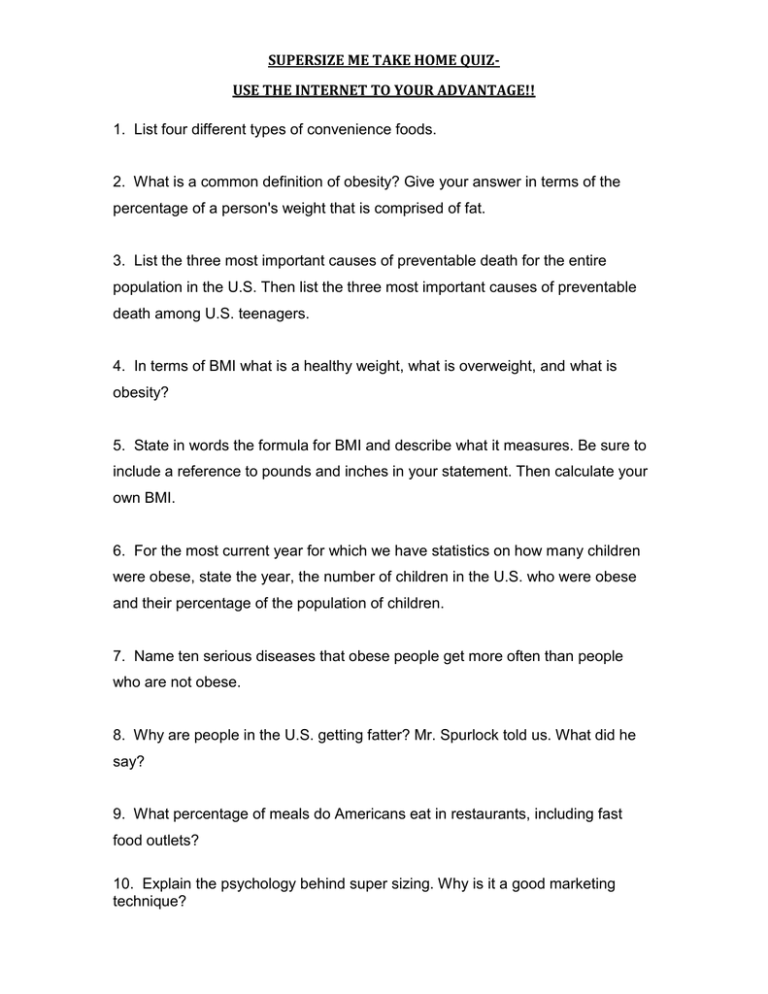
SUPERSIZE ME TAKE HOME QUIZUSE THE INTERNET TO YOUR ADVANTAGE!! 1. List four different types of convenience foods. 2. What is a common definition of obesity? Give your answer in terms of the percentage of a person's weight that is comprised of fat. 3. List the three most important causes of preventable death for the entire population in the U.S. Then list the three most important causes of preventable death among U.S. teenagers. 4. In terms of BMI what is a healthy weight, what is overweight, and what is obesity? 5. State in words the formula for BMI and describe what it measures. Be sure to include a reference to pounds and inches in your statement. Then calculate your own BMI. 6. For the most current year for which we have statistics on how many children were obese, state the year, the number of children in the U.S. who were obese and their percentage of the population of children. 7. Name ten serious diseases that obese people get more often than people who are not obese. 8. Why are people in the U.S. getting fatter? Mr. Spurlock told us. What did he say? 9. What percentage of meals do Americans eat in restaurants, including fast food outlets? 10. Explain the psychology behind super sizing. Why is it a good marketing technique? DISCUSSION QUESTIONS: GROUPS OF 4 – GROUP LEADER COPY 1. Most people know that convenience food (CF) is loaded with salt, sugar and fat. They have heard that CF is a substantial factor in causing the obesity epidemic which sickens and kills millions every year. Some of them know that in the U.S., the obesity epidemic is the second leading cause of preventable death. List the facts that affect the answer to the following question: When a consumer eats fast food from a restaurant like McDonald's or Burger King or buys convenience food in a store, who is responsible for the deterioration in the consumer's health caused by eating that food? Is it the consumer or is it the company that runs the restaurant? 2. Once the list includes at least the seven factors described above, ask for an answer to the question of who is responsible, the consumer or the company 3. Tell students to imagine their class is a congressional committee with the responsibility to recommend what the government should do to fight the obesity epidemic and to regulate the fast food industry. Tell the class that this will be somewhat like the government's campaign to reduce smoking. The plan should be based on the extent of responsibility that the consumer or the industry bears for the harm caused by the eating at places like McDonald's and Burger King. It should be practical. It should be effective. 4. Can you really take care of yourself if you don't pay attention to what you eat? 5. When an adolescent (ages 11 - 18) makes a decision about how to take care of his or her body, including weight and nutrition, who are the people who will be affected by this decision? (We call them stakeholders) Note that some of the stakeholders may not yet be alive
